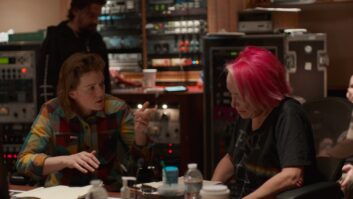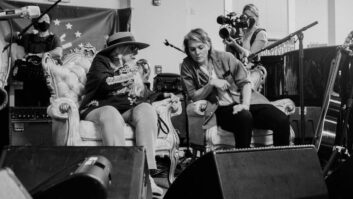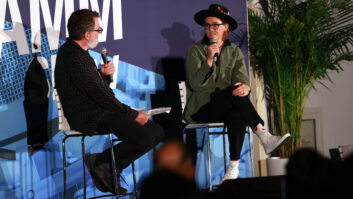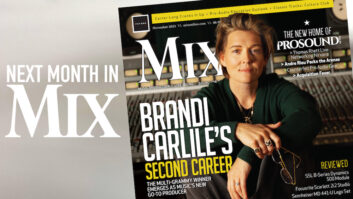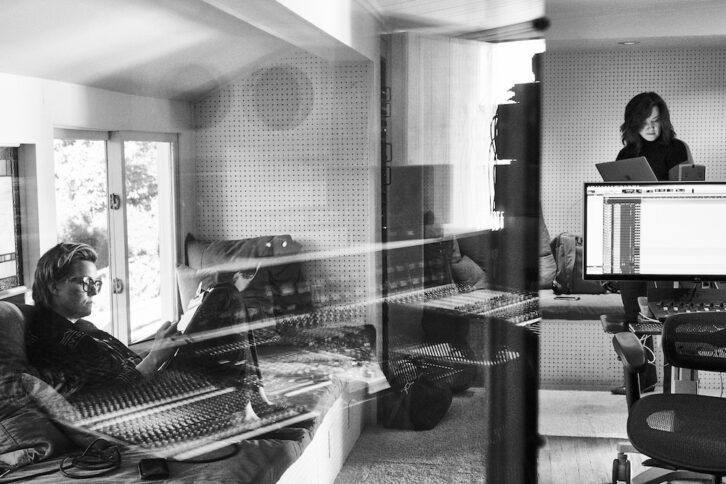
In the conclusion of our extensive interview with Brandi Carlile, she discusses producing Brandy Clark and Tish Melton, as well as her own recent singles for Barbie and Ted Lasso. Don’t pass up Parts 1, 2 and 3!
Regarding your work with Brandy Clark, she said, “This was the most ‘me’ I’ve been on a record.” Was it a challenge to draw that out of someone who has spent much of her career writing for other people?
It’s interesting, because I think we trust each other because of the things we have in common, but we admire each other because of the things that we don’t. Brandy and I are peers and contemporaries, we have the same name, we’re both lesbians, we’re both from the Pacific Northwest, but we do music differently.
We decided to make an album together based on our differences, and it’s one of the first times I’ve ever done that. I don’t feel that there were any challenges at all. I mean, Brandy was so generous and so ready to try new things, from recording live to reconsidering herself as central to her story and central to her own songwriting.
I wanted to put Brandy inside of the songs that she was writing. I don’t really speculate on what people who do songwriting for a living are thinking when they write songs, because that’s not a skill that I have access to—but I imagine there is often a setting aside of oneself to get a song made. Especially in collaboration, or with a time limit, or on assignment. I wanted to deconstruct that tendency for Brandy Clark and put her back in the center of her songs as an artist so that she could claim her rightful place as the singer of them.
I read a quote where she said to you, “I always want to respect the songs and be in service to the songs,” but you said, “I think that has to change; I think the song should be in service to the artist.” That sounds like an extension of what you are saying.
At first, she was like, “Uhh, I’m kind of squeamish about that”; she’s not a spotlight-craving person at all. It’s not like she won’t take it; she’s a hell of a performer and beautiful singer and she will take the spotlight, but there was definitely some coaxing and some justifying of it: “Hey, Brandy, here’s why you deserve it at this point. Here’s why this song is about you; it doesn’t matter who you wrote it with, or what the original line came from. Here’s how I hear it pertaining to you.”
Those kinds of things that are like this constant dredging up of the intimacy that every moment on the album needs, this is one of the things that fuels me—you know, trying to make people feel shit, and make them sound like they’re feeling it by being ready to capture a moment.
Again, not something that I could do without Brandon Bell, who is beyond sensitive and is as important in a live session as any of the players.
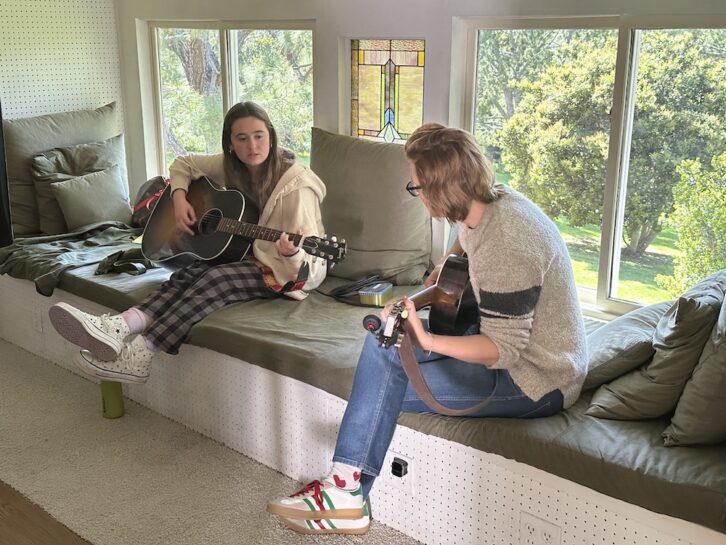
You just produced an album for Tish Melton, a 17-year-old singer-songwriter. With young, emerging artists, do you feel like you have to shepherd them in a different way?
Well, I was worried about it, honestly. I went into the project working with Tish with a lot more questions than exclamation points. I was asking her to send me a lot of music, and I was asking her a lot of questions and I was trying to formulate some feelings and opinions based on a world that I’m not in anymore.
As Tish started teaching me who she was and where she was coming from musically, I started realizing, “I do get this, I know this,” because where Tish is in her kind of indie-DIY moment here in life.
I’ve been there before. I get this, I understand who she’s listening to, I understand the sounds and the tones and the whole culture and the whole lifestyle behind the music that Tish wants to make—but I didn’t know if I did at first and I was worried that I wasn’t young enough or in Tish’s genre enough to get it. It was really exciting to me to realize that I do get it, and I think it’s actually going to influence my own writing and my own development as an artist.
You recorded the song “Home” from The Wiz for Ted Lasso, and the Indigo Girls’ “Closer to Fine” for Barbie. How do you bring your own perspective to those beloved songs while preserving what makes them beloved in the first place?
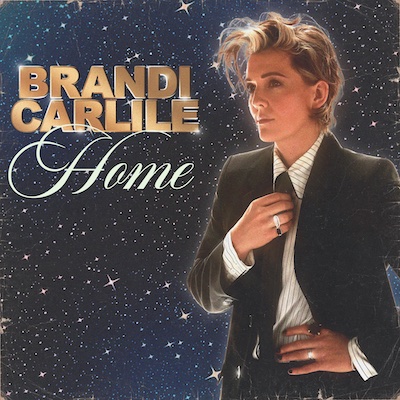 I love paying homage; I don’t know if you’ve noticed that. [laughs] I never want to carbon-copy something, but I want to honor it. I’m really fascinated with how other artists cover and record beloved songs.
I love paying homage; I don’t know if you’ve noticed that. [laughs] I never want to carbon-copy something, but I want to honor it. I’m really fascinated with how other artists cover and record beloved songs.
Two of my favorite examples would be Sinéad O’Connor’s version of “Sacrifice” by Elton John, or Kate Bush’s version of “Rocket Man,” where you honor a song, but you kind of flip the narrative a little bit. Sometimes you can to that just by being a woman when you are recording a song that a man traditionally sings, but in the case of “Home,” I wanted to hit the notes, I wanted to serve the song as a vocalist, and I wanted to serve the kind of whimsical nature of its interpretation in the string section from Oz, but I wanted to change the rhythm slightly to feel like it had a little bit more of a 1970s Americana funky Elton gallop to it.
The strings were probably central to setting that version apart; that arrangement was done by SistaStrings, Monique and Chauntee Ross, a cellist and violin player who are absolutely out of this world.
With “Closer to Fine,” the Indigo Girls are major heroes of mine; these are other artists whom I don’t think haven’t fully gotten their due, and I think probably still have a couple of big albums in their future. I would love to see a resurgence of Indigo Girls appreciation because of the Barbie soundtrack and its use of “Closer to Fine.” When Catherine, my wife, and I were asked to do “Closer to Fine,” I wanted this kind of reflective version of it, whereas I felt like when the song was written, Emily [Saliers] was sort of looking ahead at her life in this really punky, interesting, edgy, folky way.
